Dragon Spells
- GRADES 1-3
- BEGINNER
- WEB IPAD
- 10 LESSONS
-
 Voiceovers
Voiceovers
Answer Key
Module 1: Repeat Until Treasure Found

Module 2: Jump While Treasure not Found

Module 3: Eat and Blast
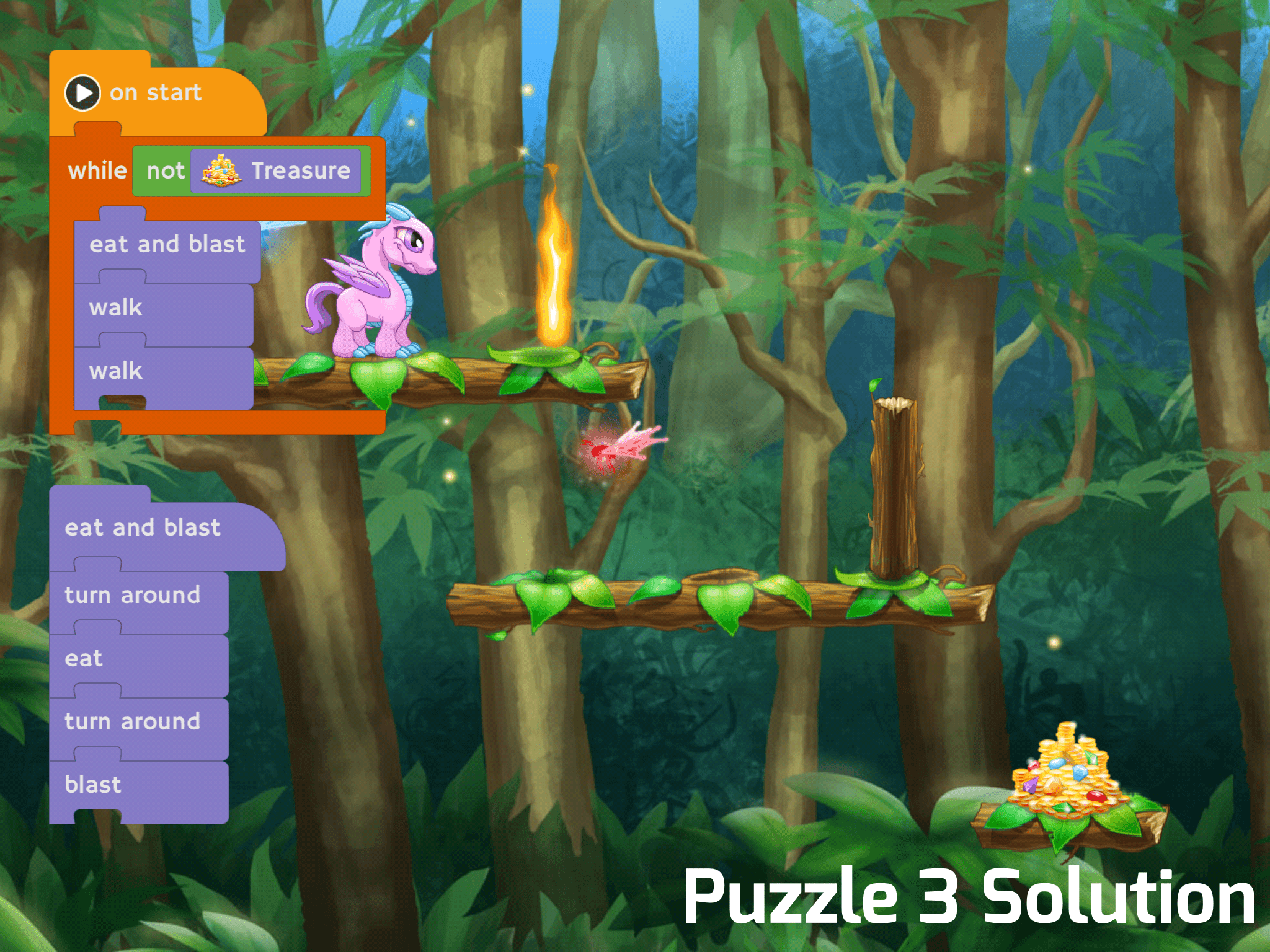
Module 4: Climb Up

Module 5: Moving Icefly with Jump Down

Module 6: Moving Bug with Jumps

Module 7: Moving Icefly and Firefly with Jump Down

Module 8: Moving Icefly and Firefly with Jump Up

U.S. Standards
- CCSS-Math: K.CC.B.5, 2.OA.B.2, MP.1
- CCSS-ELA: RF.K.4, RF.1.4, RF.2.4, RF.1.4.A, RF.2.4.A, 1.RI.10, 2.RI.10
- CSTA: 1A-CS-01, 1A-AP-09, 1A-AP-11, 1B-AP-10, 1B-AP-11, 1B-AP-12, 1B-AP-15
- CS CA: K-2.AP.13, 3-5.AP.10, 3-5.AP.13, 3-5.AP.14, 3-5.AP.17
- ISTE: 1.c, 1.d, 4.d, 5.c, 5.d, 6.b
U.K. Standards
Key stage 1
Pupils should be taught to:- understand what algorithms are, how they are implemented as programs on digital devices, and that programs execute by following precise and unambiguous instructions
- create and debug simple programs
- use logical reasoning to predict the behaviour of simple programs
- use technology purposefully to create, organise, store, manipulate and retrieve digital content
- use technology safely and respectfully, keeping personal information private; identify where to go for help and support when they have concerns about content or contact on the internet or other online technologies
Key stage 2
Pupils should be taught to:- design, write and debug programs that accomplish specific goals, including controlling or simulating physical systems; solve problems by decomposing them into smaller parts
- use logical reasoning to explain how some simple algorithms work and to detect and correct errors in algorithms and programs
- understand computer networks, including the internet; how they can provide multiple services, such as the World Wide Web, and the opportunities they offer for communication and collaboration
- use technology safely, respectfully and responsibly; recognise acceptable/unacceptable behaviour; identify a range of ways to report concerns about content and contact
Description
Students who complete Space Cadet can advance to Dragon Spells, which is a faster-paced introduction that explains even more coding concepts. Students learn about new kinds of loops, loop nesting, decomposition, abstraction, functions, and variables. Dragon Spells can be used online at tynker.com or on an iPad using the Tynker app.
In Dragon Spells, students train a dragon to collect treasure. Students review the basics such as counting loops and sequencing in the initial lessons, and then they learn all-new coding concepts. They learn how to solve hard problems using decomposition and abstraction with real world examples. They also learn to use input and output in their programs, making their projects more interactive. Students even use functions to organize and reuse sections of code. The course also includes open-ended DIY projects where students apply all the concepts they have learned and can express their own creativity with code. By the end of this course, students can write simple algorithms using loops, conditionals, functions, and variables and know how to debug their code.
Dragon Spells maps directly to the elementary curriculum in Everyone Can Code program from Apple. Educators can download Apple Education’s free book Getting Started with Code 2 which provides additional guidance on how this course can be taught using an iPad.
Topics
- Types of loops
- Decomposition
- Abstraction
- Functions
- Nested loops
- Input and Output
- User Interface
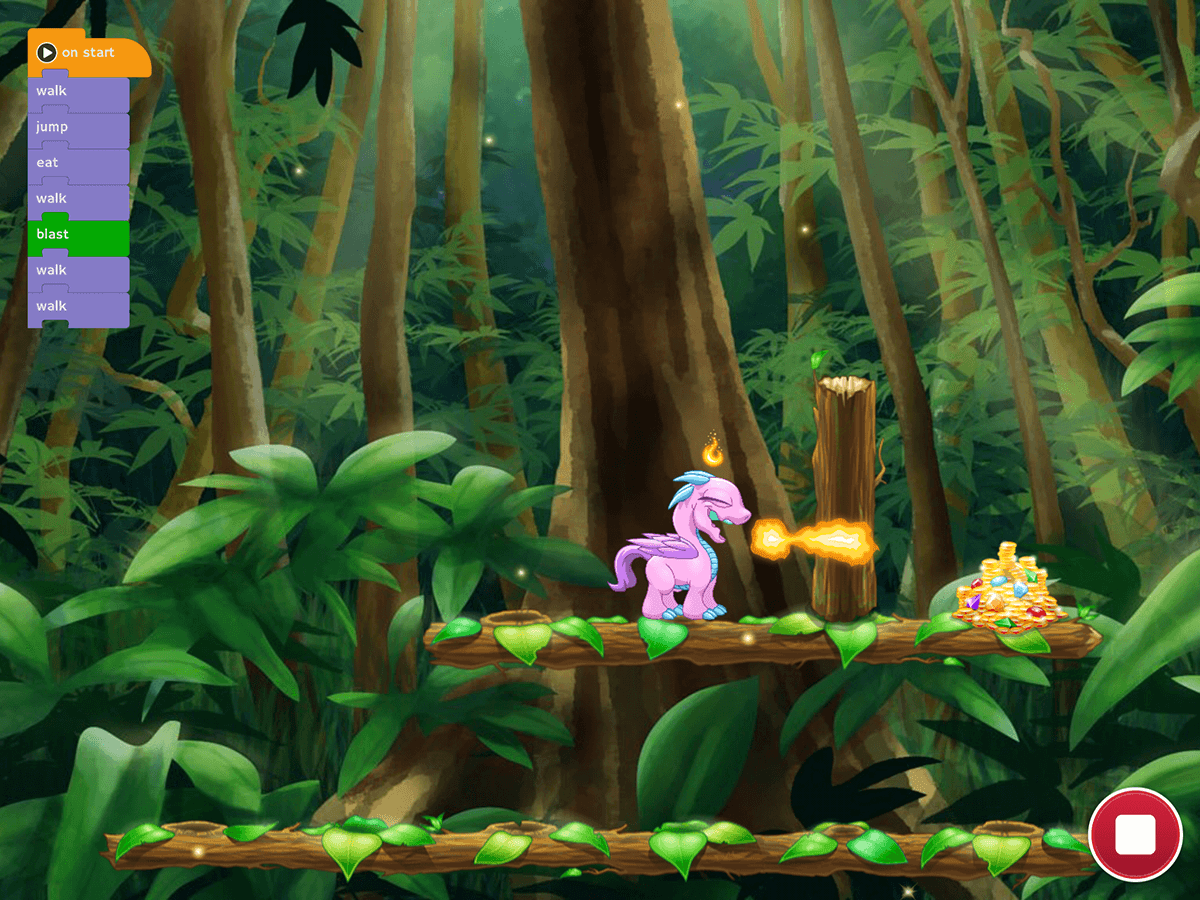
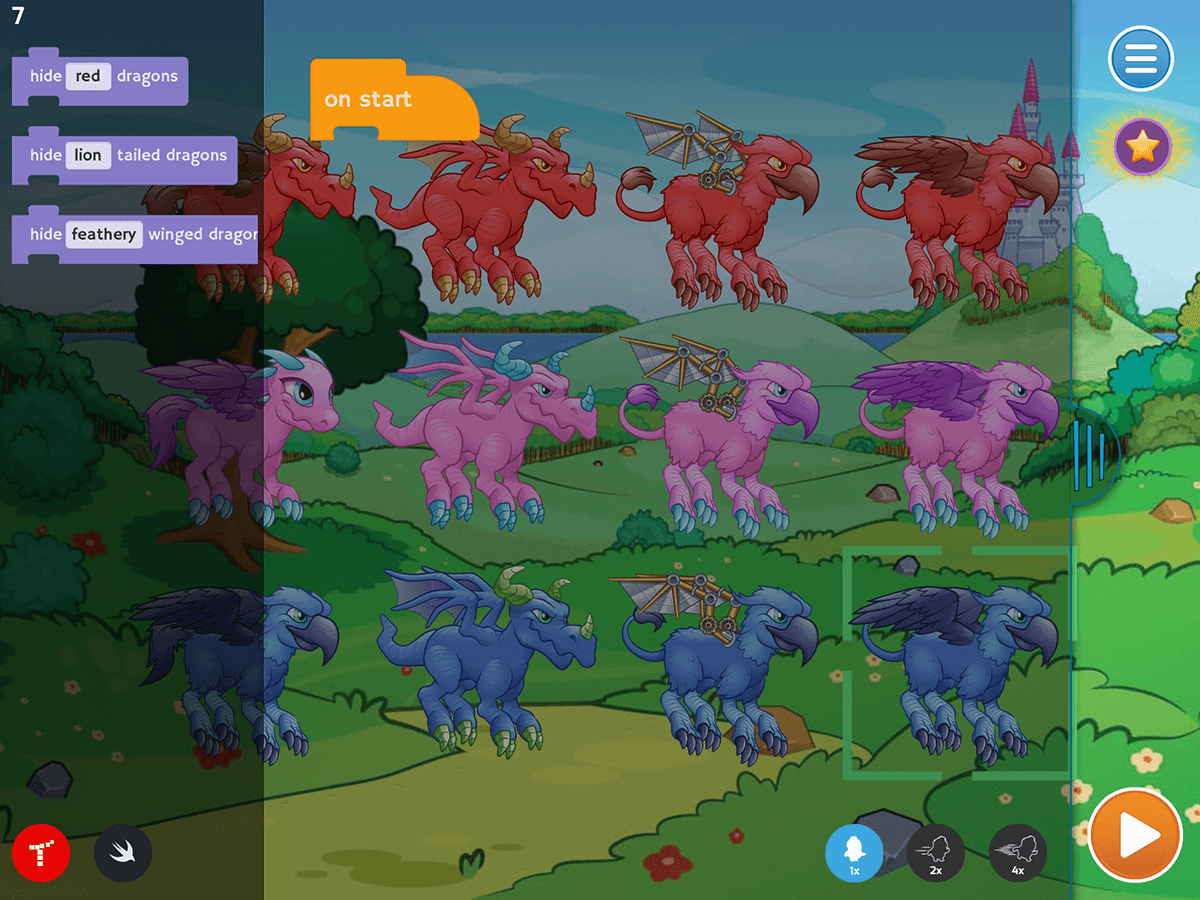
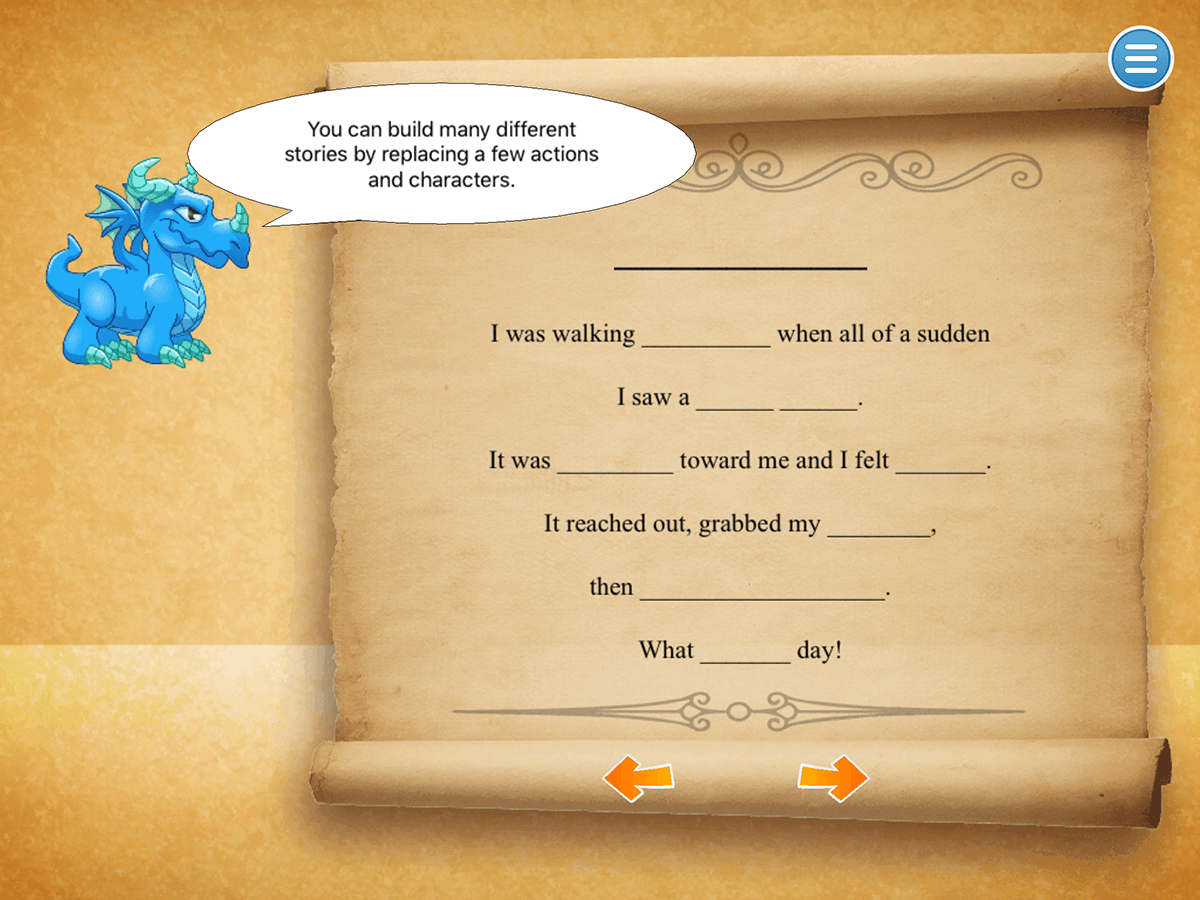
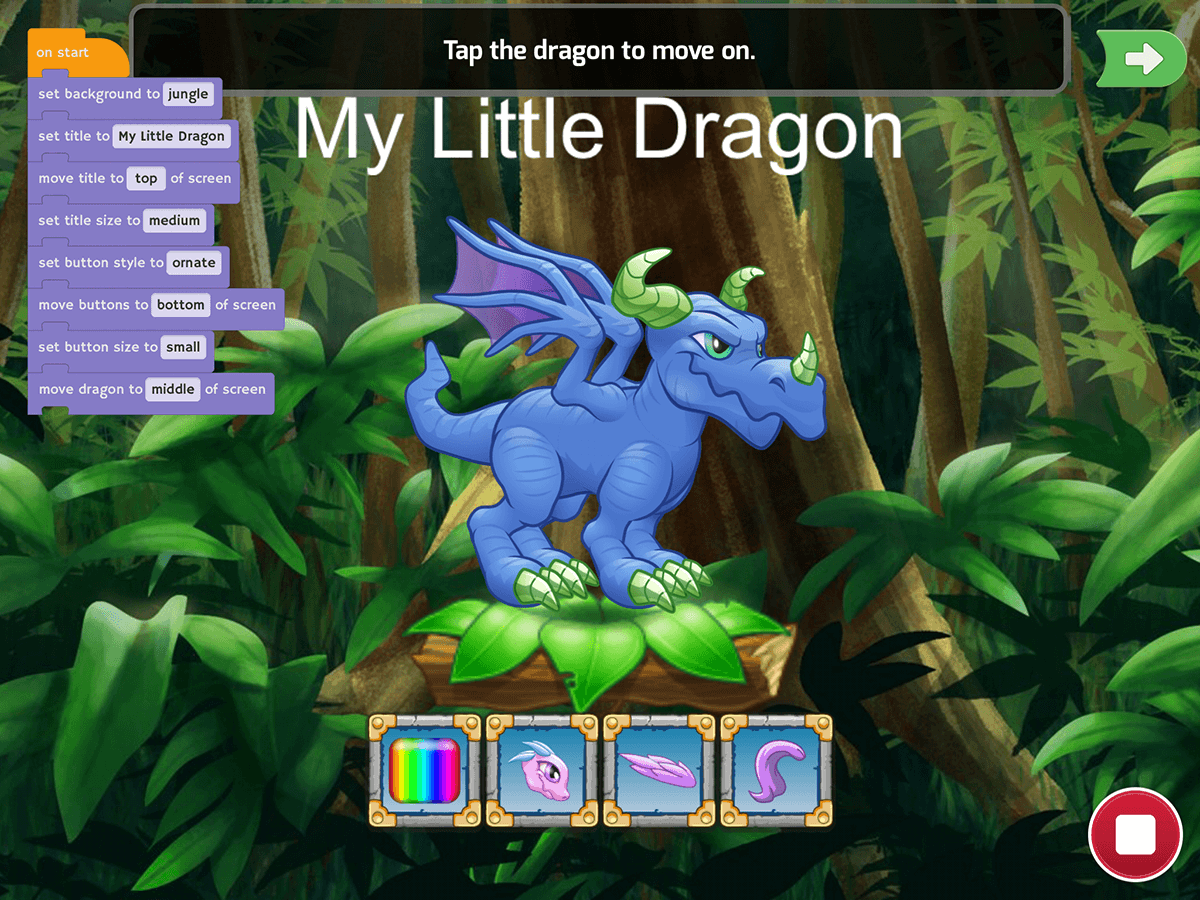
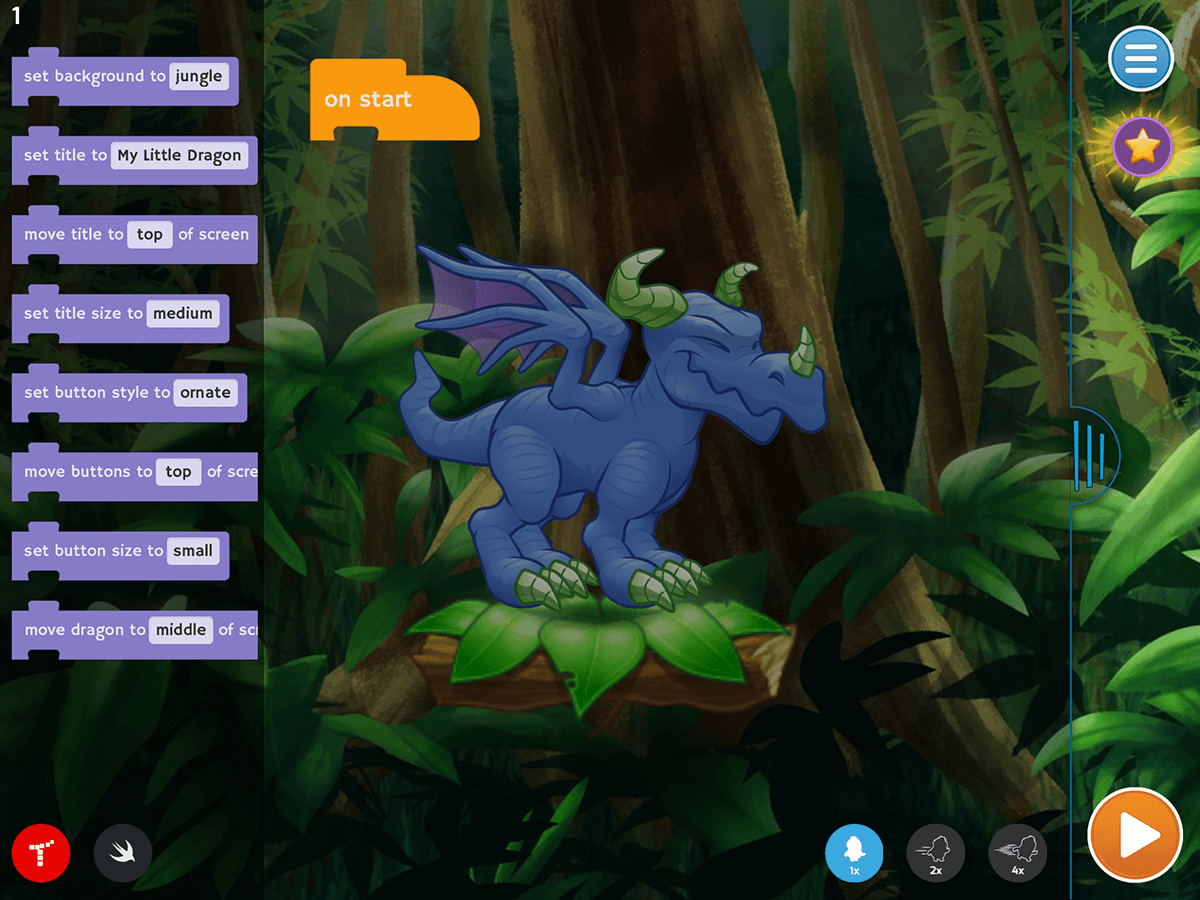
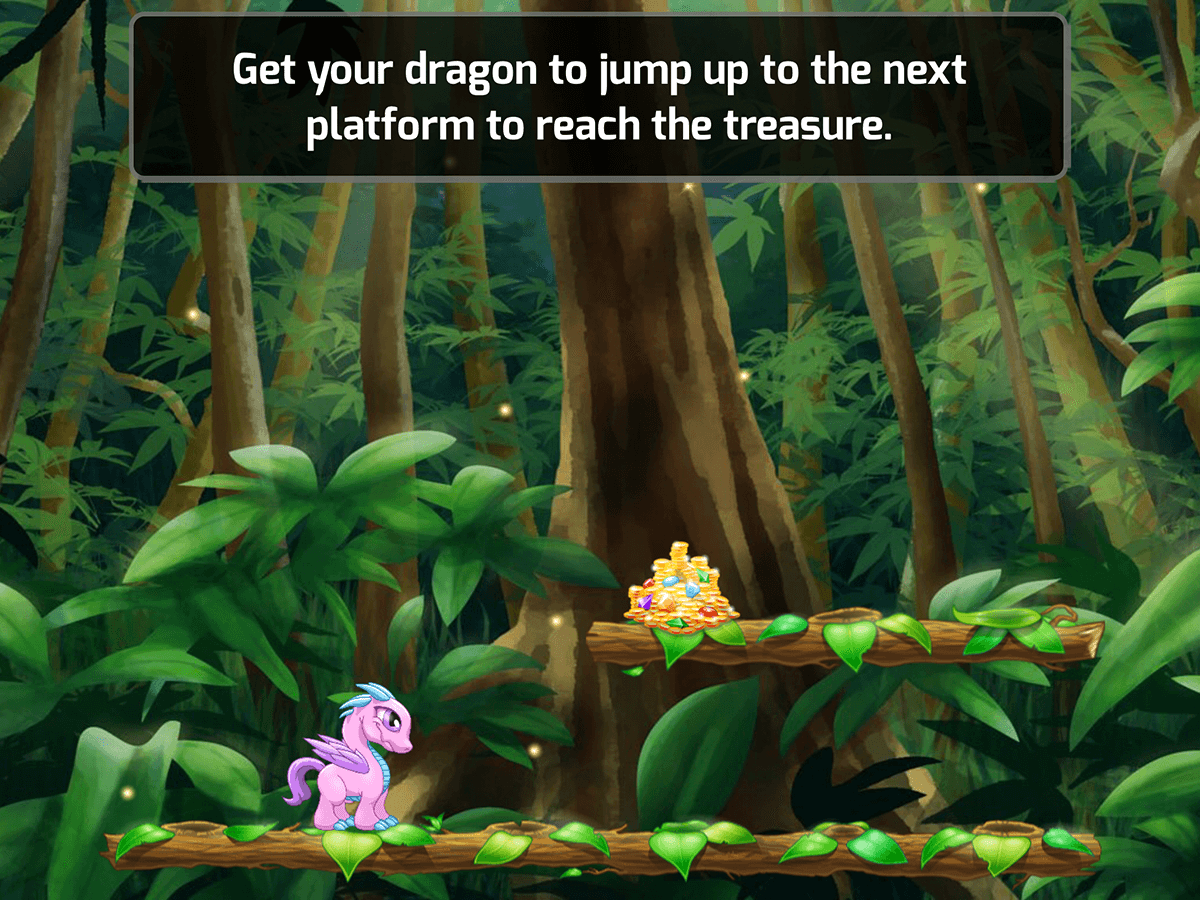
What Students Learn
- Solve coding puzzles using a variety of loop types
- Learn about decomposition and abstraction
- Define and use functions in programs
- Handle different situations using conditional statements
- Use variables, input and output in your programs
- A quick introduction to building a user interface
Technical Requirements
* Online courses require a modern desktop computer, laptop computer, Chromebook, or Netbook with Internet access and a Chrome (29+), Firefox (30+), Safari (7+), or Edge (20+) browser. No downloads required.
* Tablet courses require an iPad (iOS 10+) with Tynker or Tynker Junior app installed and Internet access

Lesson
8 : The Long Road
Dragon Spells
Time: 30+ minutes
Introduction
Tynker Blocks Introduced
Vocabulary
Objectives
Materials
Warm-Up (5 minutes)
Activities (30 minutes)
Facilitate as students complete all The Long Road modules on their own:
The Long Road







